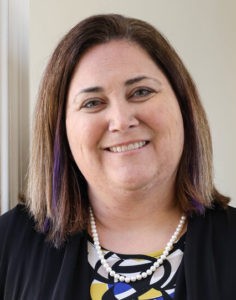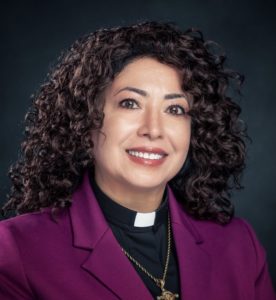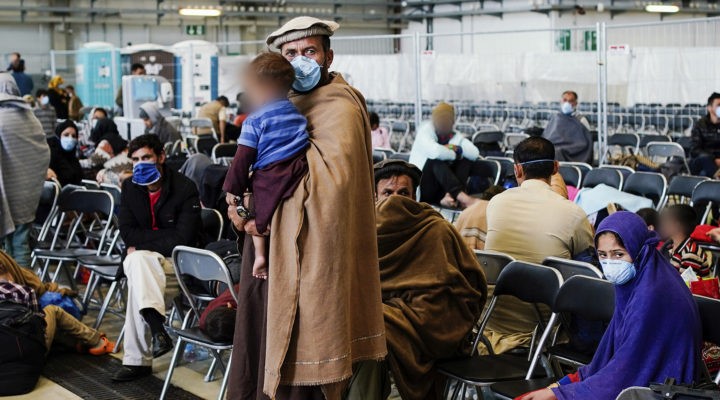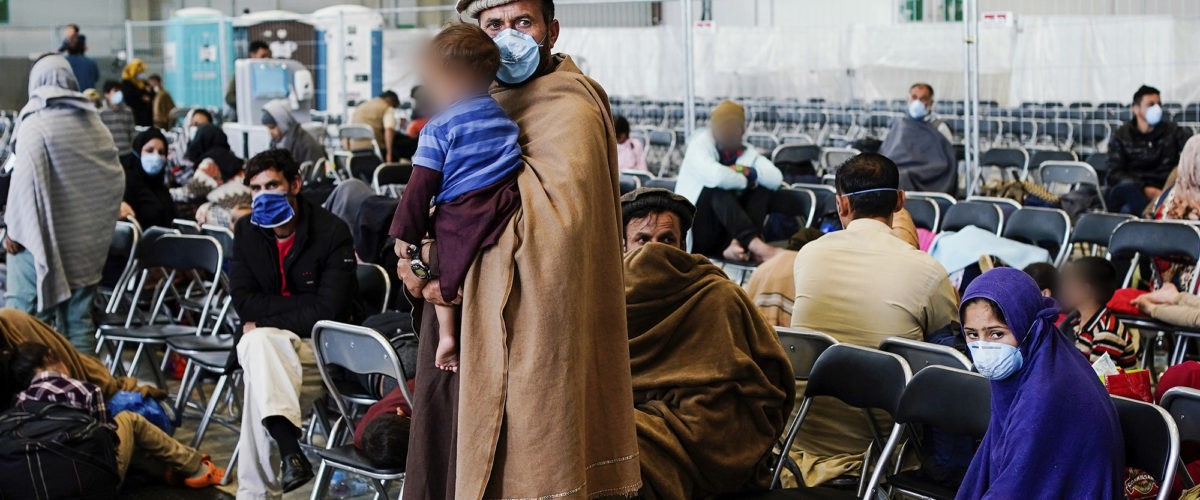American religious groups, civic associations, businesses and even neighborhoods are enthusiastically responding to pleas to aid tens of thousands of Afghan refugees in need of rapid resettlement across the nation.
Officials who oversee refugee resettlement agencies and the leaders of faith groups who coordinate grassroots welcoming ministries have reported an outburst of local offers to contribute housing, furniture, food, clothing and other needs that the bewildered and grieving Afghans will need after being hurriedly rescued from their homeland now under Taliban control.

Erol Kekic
“It is important to note that we are experiencing something beautiful. Groups across the country, and across the political spectrum, are coming forward wanting to help,” said Erol Kekic, senior vice president for the immigration and refugee program at Church World Service, one of nine major refugee resettlement agencies in the United States. “It’s not something we see often these days in this country, and it comes from the heart.”
That outpouring of good will stems in part from the around-the-clock news coverage of Afghanistan’s violent slide into chaos and the desperate plight of Afghans who had worked with U.S. and coalition forces during the 20-year war, including as interpreters.
“This is a once-in-a-generation, if not once-in-a-lifetime, chance for us to respond to a human crisis that we can all rally around,” he said.
And there is plenty for them and additional volunteers to do.
Kekic said the U.S. State Department has advised resettlement agencies to expect as many as 50,000 Afghan refugees to be in need of emergency placement nationwide. Many are being sent to Sacramento, Calif., and the Dallas-Fort Worth Metroplex, where sizeable Afghan refugee populations already reside.
“This is a once-in-a-generation, if not once-in-a-lifetime, chance for us to respond to a human crisis that we can all rally around.”
“But it is very likely people will end up in all 50 states in a matter of months,” he added. “It is a shot in the dark at this time.”
Many refugees are currently being processed at U.S. military bases before being released to resettlement groups, who are scrambling to accommodate them.
“Most people, if not all, are background checked, and each individual is COVID screened and COVID vaccinated. The government is doing the right thing making sure everybody who comes through is vetted,” Kekic said. “This whole effort will take a village.”
Expanded work in North Carolina
That village is coming together across the country, including in the Research Triangle of North Carolina, said Marc Wyatt who, with wife, Kim Wyatt, serves displaced people as Cooperative Baptist Fellowship field personnel.

Marc and Kim Wyatt
The Welcome House ministry the couple established in Raleigh in 2015 has expanded to accommodate Afghan refugees who recently escaped their nation, thanks to a number of regional churches who have offered homes and other spaces previously used as rentals or to house missionaries.
That’s in addition to more than 20 families willing to provide space plus numerous offers to provide furniture, food and clothing. Volunteers are stepping up to provide “wrap-around” accompaniment to help Afghans adjust to life in the U.S., Wyatt said.
More than $30,000 was donated to help the refugees during a recent three-day period and, after an appeal for help made through CBF North Carolina, offers of space, volunteers and funds also came in from as far away as Texas and Virginia, he said.
“This has touched the hearts of Americans.”
“I can’t catch up with all the messages that are coming from everywhere,” Wyatt said. “This has touched the hearts of Americans. These are people who take so seriously the words of Jesus: ‘I was a stranger and you invited me in.’”
A pastor calls his church to action
Temple Baptist Church in Raleigh did just that on Sept. 2 by welcoming an Afghan family of four into a nearby home it owns.
“We are helping Jesus in the guise of this family,” said Michael Parnell, pastor of the CBF partner church. “I feel like I am living into what the Scripture calls me to do.”

Michael Parnell
Parnell began calling his congregation into this ministry a few weeks back when the implosion of Afghanistan’s government, and impending evacuations, first became major news. “I started saying out loud to our people: when they start relocating people, we need to consider very seriously the idea of taking on this mission.”
The congregation contacted the Wyatts about their housing availability and soon were connected with their refugee family. Temple’s deacons voted unanimously to green light the move.
“I feel very strongly that if God gives you an asset that can help someone in need, then you need to use it to help them,” Parnell said.
A similar story is told at Hayes Barton Baptist Church, in Raleigh, where Kristen Muse serves as senior associate pastor.
“Our congregation has stepped up and is really excited to help,” she said. The congregation has made two rental properties available to the Wyatts’ Welcome House ministry.

Kristen Muse
“People are helping by giving furniture and money — they want do anything they can for these new neighbors,” Muse said.
The spirit of compassion also has spread to the wider community. Neighbors who live on the street where the two single-family homes are located are offering food for Afghan refugees, while members of the church’s television congregation have been providing furniture.
“People are e-mailing me asking if they can be there to welcome them (the refugee families),” Muse said. “It’s really inspiring when you see God using people to show love in these ways.”
Interfaith effort in Houston
It will take a lot more creativity and generosity to respond to the sudden influx of Afghans than it typically does with other refugees legally resettled in the U.S., said Ali Al Sudani, chief programs officer of Interfaith Ministries for Greater Houston.

Ali Al Sudani
Some of the 2,000 to 3,000 expected to arrive in Houston are holders of Special Immigrant Visas typically given to interpreters, translators and others who worked with allied forces during the war. The status includes access to employment eligibility and social services benefits such as health care and food stamps.
But others are arriving with Humanitarian Parole status, which provides emergency entry into the U.S. without those benefits or immediate employment eligibility.
This all amounts to an urgent need for greater housing capacity, volunteers and financial assistance than in previous waves of refugees, Al Sudani said.
“It takes coordination, and it takes major fundraising. We do anticipate those with parole status will need three to four months rental, food and medical assistance until they can adjust their status to receive benefits.”
Al Sudani said his agency has launched a fundraiser to help meet some of those expenses while it also appeals for help from religious groups and other community organizations for volunteer, material and space donations. So far Christian churches, Islamic mosques, Jewish temples and others have come through.
“I have not seen this level of responsiveness and support from the Houston community before.”
“I have not seen this level of responsiveness and support from the Houston community before,” he said. “I am not surprised by that, but I am overwhelmed with the kindness and support and courage and interest of individuals.”
Experiencing firsts in Dallas
The situation is creating other firsts for groups that assist refugees, said Samira Page, founder and executive director of Gateway of Grace, a Dallas-based ministry that works to integrate and empower refugees through church-based partnerships across denominational lines.
Among those firsts is an ongoing effort to assist Afghan refugees in locating children in federal custody who boarded separate aircraft during the hectic evacuation from Afghanistan, she said. “We have also been providing emotional and spiritual support for people who have relatives back home who did not evacuate. That has been really heartbreaking.”
There is also a high level of pastoral care being provided, she added.

Samira Page
“We are serving those dealing with emotional trauma and loss — loss they haven’t even begun to process. They are experiencing emotions ranging from anger to hatred to fear — and guilt. A lot of the families who were able to leave are dealing with survivors’ guilt.”
Page said she recently attended a Farsi-speaking church where two Muslim Afghan women entered the sanctuary. “They came to us, and they wanted persecuted Christians to pray for them. We are seeing many situations that we have not seen before.”
Building on existing relationships
Another unique aspect of Gateway of Grace’s ministry is that it already was working with Afghan refugees, who had family members desperately trying to leave Afghanistan as the government fell and the Taliban took over.
On Aug. 23, Page hurriedly collected air miles from friends and donors in order to bring seven Afghans from Washington Dulles airport to Dallas-Fort Worth International Airport.
“The journey from Kabul’s airport has been long and hard,” Page wrote on Facebook that night. “The mom and her children have been a part of Gateway of Grace for a few years. The details of how they got to Kabul airport and what the children saw are horrific. We are just grateful they are going to be in Dallas tonight.”
A few days earlier, Page had begun rallying support for what she already knew would be an influx of Afghan refugees. She knew the situation was urgent because the Afghans already being served by Gateway of Grace and its affiliated congregation, Grace Community, were telling her their desperate stories.
“If you will allow the image of families clinging to the side of the Air Force cargo plane to sink in, that is a sobering reminder of how most refugees leave their country, with nothing but the clothes on their back.”
“What makes this even more difficult and personal is the fact that Gateway of Grace Ministries serves Afghan families that have family members who are fearing for their lives,” she wrote on Aug. 17. “Nearly all the families we serve have spouses who worked for years alongside U.S. soldiers as translators, engineers, supported intelligence gathering and did many other jobs.”
What Americans need to understand, Page added, is the immense scope of the support networks required to welcome refugees.
“If you will allow the image of families clinging to the side of the Air Force cargo plane to sink in, that is a sobering reminder of how most refugees leave their country, with nothing but the clothes on their back,” she said. “So, Gateway of Grace is preparing to meet a very high-level need that we could not have imagined at the start of the year. Many refugees will arrive just as my family and I arrived more than 20 years ago, overwhelmed with anxiety and uncertainty, and in need of help in every way — yet not knowing one person in America.”
What she learned as a refugee herself guides her philosophy in caring for others now: “In short, we will be a neighbor to our Afghan friends as we are to so many other refugees.”
Related articles:
Churches urged to get ready to welcome Afghan refugees
‘Humanitarian catastrophe’ unfolding in Afghanistan
Love ’em and leave ’em: America walks out on Afghanistan | Opinion by Erich Bridges


